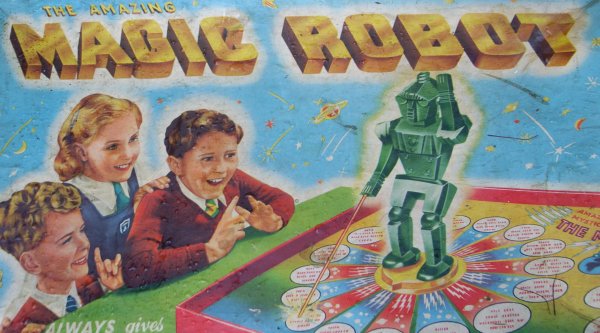
I loved robots when I was a kid. They seemed to be everywhere in popular culture. From the Amazing Magical Robot Game, an educational toy that appeared in my Christmas stocking, to the weekly dose of “Danger, Will Robinson” while watching the cult American classic series Lost in Space, I was hooked. So when I was seven or eight years old and "Tricky’s" the local toy shop, put one in their shop window, I had to have it. Beyond the reach of my pocket money, I devised “The Robot Club” with...
read more